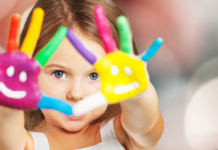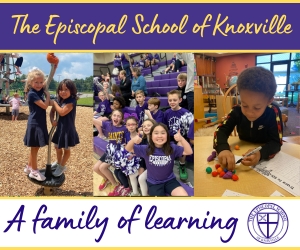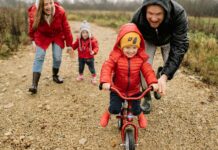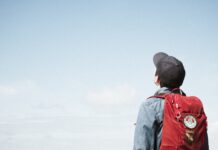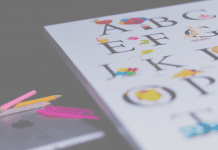At the Episcopal School of Knoxville, both the administration and faculty believe that “play is the work of children,” and at no level is that more apparent than with the junior kindergarten program. From its inception at the start of the 2014-15 school year, the program has provided a place where students are able to learn lifelong skills that will help them successfully transition to kindergarten.
{Visit ESK for their Open House on Sunday, January 22nd from 2-4pm}
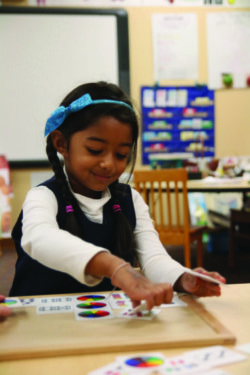
ESK began a feasibility study in 2012 with a committee that included administration, teachers, parents and a board member with a background in education. This committee also surveyed parents to incorporate their childcare needs and educational wishes for their children. The school knew it wanted an exemplary program with licensed teachers that mirrored its commitment to K-8 students.
When space became available, ESK started its program with one 4-year old class and quickly expanded to offer both 3- and 4-year old classes the second year. In the third year, the popularity of the program necessitated the addition of a second 4-year old classroom.
The JK-4 program runs five days per week and the JK-3 program offers a three-day (T, W, Th) or five-day option. The junior-kindergarten day begins at 8am and ends at 1:30pm. Extended care is available for an additional fee. Class size is limited to 16 students. ESK is licensed by the Tennessee Department of Education and exceeds the requirement for teacher qualification as well as the student-teacher ratio.
Currently, the program boasts three full-time licensed teachers along with two full-time and one-part time assistant. The full-time teachers – Sally Riley, Jen Hackett and Pamela Shields – have years of experience, and each one has a passion for teaching this age group. That passion is easy for both the students and parents to see.
“My children love their teachers!” current parent Porscha DeBusk said. “I find comfort in knowing that, when I leave my children at school, they are surrounded by people they love and trust. Most importantly, their love and trust is reciprocated. This has had a direct impact on their confidence and self-esteem.”
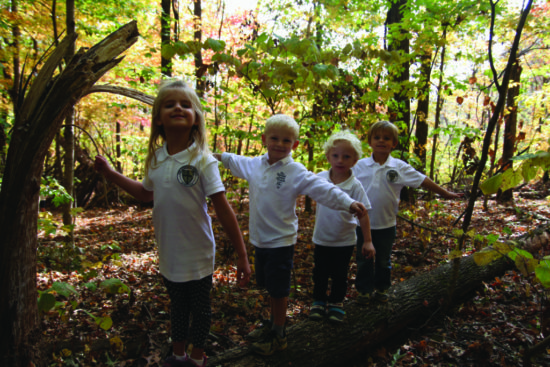
Riley said her passion stems from the fact that “the preschool years are a period of extremely rapid brain development.” The increasingly efficient communication between various regions of the brain enables preschoolers to rapidly learn new skills and absorb information.
Every element of the junior kindergarten program is developed with the children at the center. Their development is not left to chance. Academic goals and objectives are met by careful planning and building on what each individual can do and challenging them to reach just beyond their comfort zone. The teacher’s role is to co-explore and co-construct the learning experience with the children.
“The small class size and full-time assistant allows me to tailor the curriculum to meet individual abilities,” Shields said.
An emergent curriculum values student input and encourages children to explore, create and make choices leading to greater involvement in their own learning. Time is not set by the clock but by the child’s needs and interests. Sufficient time is given for a child to express, learn, explore, extend and revisit a given project.
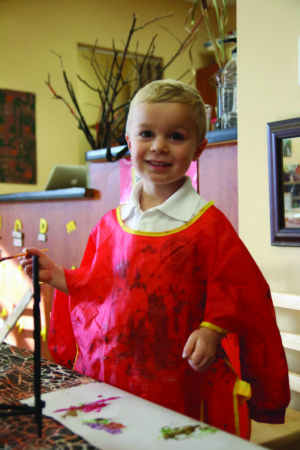 The program is centered on three main elements: physical, social and emotional growth. Physical growth is achieved through outdoor play, physical education class, music and movement, while students achieve social and emotional growth through the Tribes activities that encourage community, sharing and conflict resolution. ESK’s entire faculty has extensive training in the Tribes process, which encourages the promotion of positive self-image, respect and independence.
The program is centered on three main elements: physical, social and emotional growth. Physical growth is achieved through outdoor play, physical education class, music and movement, while students achieve social and emotional growth through the Tribes activities that encourage community, sharing and conflict resolution. ESK’s entire faculty has extensive training in the Tribes process, which encourages the promotion of positive self-image, respect and independence.
It is the hope that each student enrolled in the Junior Kindergarten program will matriculate into kindergarten at ESK. Therefore several of the learning materials they will use, including Everyday Math and Handwriting Without Tears, are materials they will see again as kindergarten students. Reading and writing also play a huge role in the development necessary for kindergarten.
“Students create a lot of books in my class because I want them to be authors and start to write and create,” Hackett said. “It is amazing to see their ideas come to life as they write their stories.”
One of the greatest assets for the junior kindergarten program is access to the 96-acre campus that serves an outdoor classroom. The outdoor trails are utilized daily as students are discovering their environment and learning about the animals and plants that live in the area.
“When you know and care about a place deeply, you can build on that knowledge and apply it to all aspects of life,” Lower School Director Nancy Laurence said. “This place-based education approach extends to community involvement and service projects in all our classrooms.”
Both Hackett and Shields said that, at the beginning of the year, some students were hesitant to venture into the woods for fear of bugs or other creatures, but now there is no hesitation for students when the ESK woods are on the agenda.
“They love to be outdoors, and it just spikes their curiosity,” Shields said. “That encourages the learning and is exactly what we want to do. We want them to be excited about learning and asking questions. This is an age when they are just ripe with that desire.”
Another cornerstone of the program is that students are exposed to the same enrichments as the older students. Enrichments include daily Chapel along with weekly classes in library, Spanish, Mandarin Chinese, physical education, music and art.
Longitudinal studies by Harvard University confirm that learning additional languages increases critical thinking skills, creativity and flexibility of the mind in young children. A child’s brain is formed with the synaptic connections necessary to hear and produce all the sounds used by all the languages around the world. These connections can either be strengthened or pruned away depending on their usage.
“The early exposure to Mandarin Chinese and Spanish develops curiosity about different cultures,” Riley said. “This curiosity and understanding will help prepare them to be citizens of the world one day.”
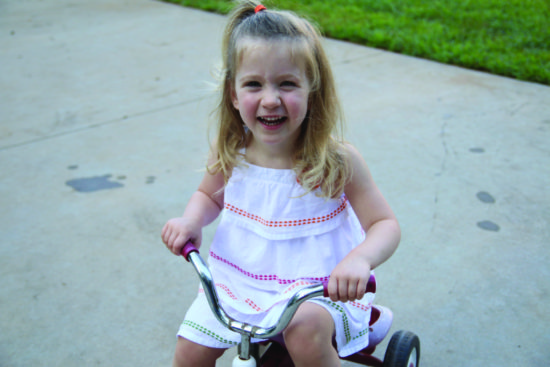
When asked, all three Junior Kindergarten teachers agreed that ESK does an excellent job of making sure the 3- and 4-year-olds feel like valued members of the greater ESK community. Hackett continually invites faculty and staff members into the classroom.
“Chef Erin has given my students hands-on experience cooking in the classroom, and all the students love when our security guard, Mr. Jim, teaches a safety lesson,” Hackett said. “Building these relationships is key to having students feel secure and ready to learn.”
“Everything we do is a foundation upon which the community-minded character of ESK is built,” Riley said. “We believe in inclusiveness and celebrate diversity. Along with daily Chapel, we teach character development through our Tribes process and service learning projects.”
Part of the ESK mission states that the school aspires “to prepare students for a lifetime of learning within the context of a loving, inclusive and family-centered community.” Laurence knows that through the Junior Kindergarten program, ESK has the opportunity to nurture “noble human beings who are interested in social justice and respect the world around them.”
ESK is committed to creating and maintaining a place for its youngest children that acknowledges, reflects and communicates the school’s beliefs. The values of ESK’s Junior Kindergarten program are based on an image of the child as curious, competent and capable of co-constructing knowledge.
When asked to describe what sets ESK’s Junior Kindergarten program apart from others in the area, DeBusk said, “The first word that comes to mind is inclusive. Everyone wants to see each other succeed. Parents, teachers and students praise, encourage and uplift one another. Mrs. Hackett is very intuitive. She not only sensed Henry’s (DeBusk’s son) strengths and weaknesses but also knew exactly how to direct them in order to make him blossom.

